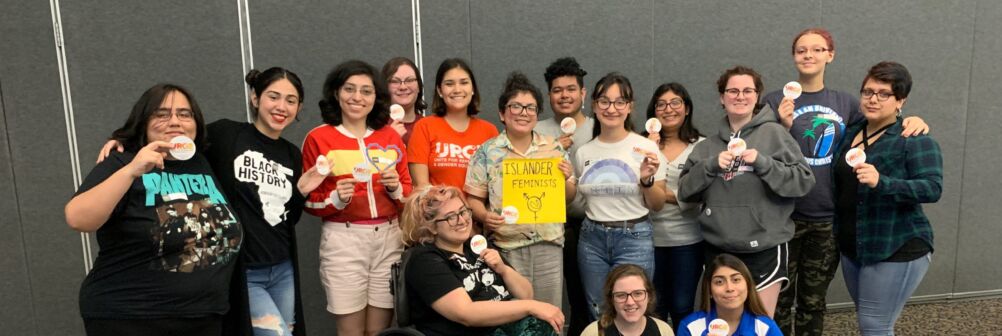The URGE RJ Voter toolkit is to be used as a source to empower our communities which are most often the targets of voter suppression laws that intentionally violate our most basic human rights. In this document, we will highlight the relationship between voting and reproductive rights, the role of elected officials, and what principles and policies are in alignment with the Reproductive Justice framework first introduced by Sister Song in 1994. By voting to preserve the sanctity of the four pillars of Reproductive Justice – The Right to have a child, the right to not have a child, bodily autonomy, and the ability to raise our children in safe and sustainable environments – we will make tremendous steps to building power that is truly reflective of our communities.
Before you go further, check if you are registered to vote:
Voting Is A Reproductive Right:
The relationship between Voting Rights and Reproductive rights, while perhaps not obvious, is quite obvoluted. The attack on Black, Brown, poor, and queer folks so as to control feigning power is not one that is lost on many. What we recognize and respect is that it is a strategy of suppressive and oppressive “leaders” and corporations to look at the attack on our bodies and our voting rights as two separate wars against the rising United States Majority. The conflation of a war to protect our vote and our body is necessary to enact a progressive win that allows for true, accurate, and progressive representation for young queer BIPOC folks across the country.
The war against our bodies and our votes are nothing new to Black, Brown, and queer folks. That said, the strategy to disarm us of our respective rights is ongoing, and unfortunately too effective. And while we fight against new voter suppression laws and the rebirth of old tactics, the most effective weapon of disarming us is to exhaust our communities and create distrust within our democracy. It is the responsibility of our generation to disrupt this system in the very ways they are afraid of. Since the wave of voter suppression laws passed across the country, many have said “If our vote was not so important, they would not work so hard to take it away from us.” And it is in that spirit that we invite you to join us in this fight to dismantle white patriarchal systems of oppression, and creating a true democracy.
What’s on the Ohio Ballot?
There will be a special election to fill the seat representing Ohio’s 15th Congressional District in the U.S. House. Allison Russo (D) and Mike Carey (R) won their respective primaries on August 3, 2021, moving forward to the special general election on November 2, 2021. The special election will fill the open seat left by Steve Stivers (R), who resigned to become the President and CEO of the Ohio Chamber of Commerce. And here is a list of local ballot initiatives that that are at play this year also: https://ballotpedia.org/Ohio_2021_local_ballot_measures
What is a congressperson? How does that tie back to Reproductive Justice?
A congressperson is a member of the legislative congress, particularly the US House of Representatives. Congressperson’s are involved in making laws, control taxing & spending policies and regulating commerce. These are all essential to reproductive justice as these laws are key components to addressing the issues. Like for example with the Women’s Health Protection Act, a lot of the ways we can put protections into law is through who we elect & how we pressure them to address and remove systemic barriers to reproductive justice.
What is a school board member? How does that tie back to Reproductive Justice?
Creating and sustaining healthy schools is essential to building safe communities, and school board members play a critical role in doing so. School boards make decisions about school priorities, school spending, and school services that have an impact far beyond their school district. A school board member is responsible for providing citizen governance and oversight of their school district. All students, parents and guardians, and school workers should learn and work in safe and healthy schools, and public schools should belong to the community. School board members must center their communities in decision making and act in the best interest of those who make up their school district. Public education is rapidly being privatized and it is important that we maintain an active role in school board elections to ensure we continue to protect our schools.
Creating A Voting Plan:

